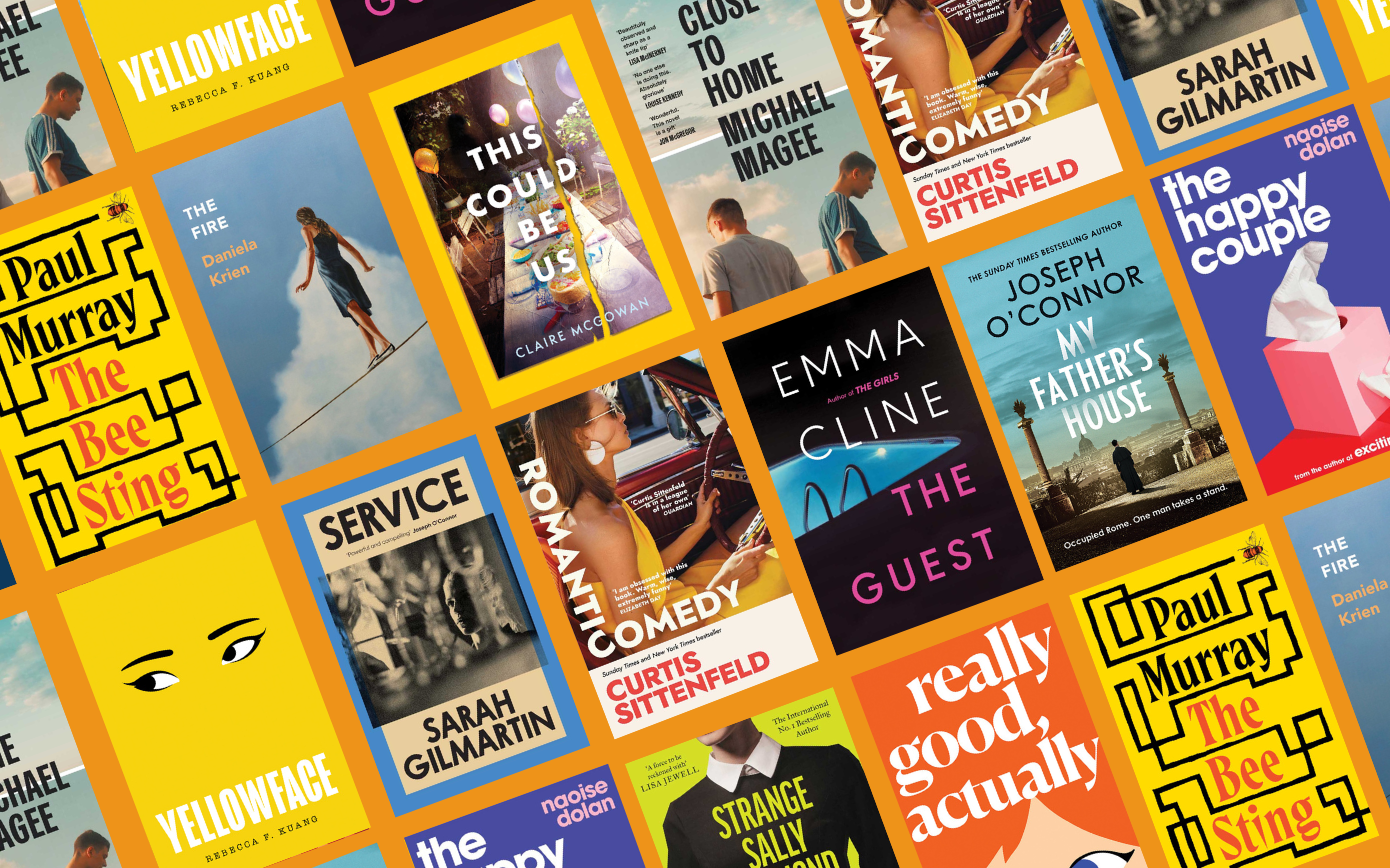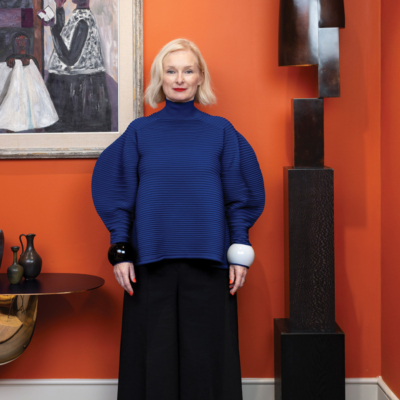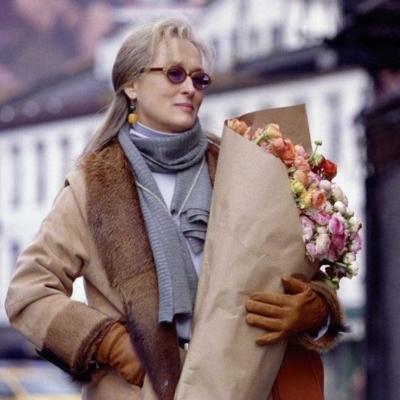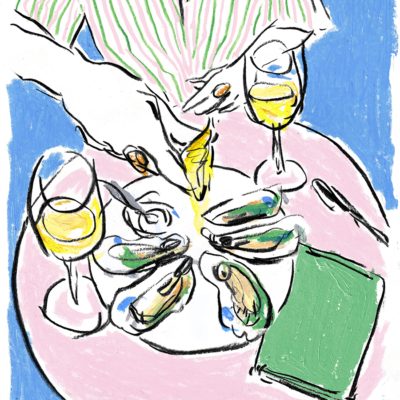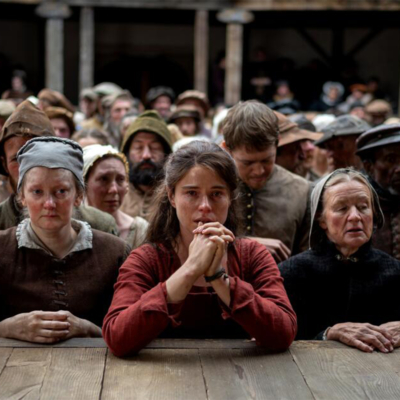Searching for your next summer read? Orna Mulcahy shares her top recommendations from this year’s new releases …

Skippy Dies author Paul Murray is back with THE BEE STING (Hamish Hamilton, €15.99), a family saga set in a small town after the Celtic Tiger has been and gone. Dickie Barnes is letting his car sales business slide, his wife, the stunning Imelda, is selling everything she has to make ends meet, daughter Cass is being led astray as the Leaving Cert looms and his son PJ is trying to pay off a debt to a disgruntled client of his Dad’s garage. Meanwhile, the new mechanic in town, Ryszard, is a brooding presence that Dickie cannot ignore. Having failed to reconnect with his boyhood friend Willie, Ryszard is the consolation prize, only he likes to record things. That’s just one of a host of headaches for Dickie as the once-golden Barnes family slip ever downwards. Murray’s brilliantly wrought characters keep the narrative going but sadness seeps from every page.

BE MINE by Richard Ford (Bloomsbury, €23.75) is the latest novel in the chronicles of Frank Bascombe, the sports writer turned real estate agent whose life story has been laid out in previous novels and a collection of novellas over the past 37 years. Frank is now in his 70s, working part-time in real estate and caring for his 49-year-old son who is suffering with Lou Gehrig’s disease – a diagnosis he likens to “crashing your car into a wall day after day, with the outcome always the same”. Together they set out on a journey, first to the Mayo Clinic for trials and treatment and then on to Mount Rushmore, a substitute for Paul’s dreamed-of trip crossing America in search of the weirdest sounding towns. As Paul visibly declines, Frank muses on his life and loves with close-up observations on America now, a place where you can make it big or be shot in a shopping mall. As their journey draws to a close, Frank wonders what he will do next, though the ending suggests God may have been amused at his plans.
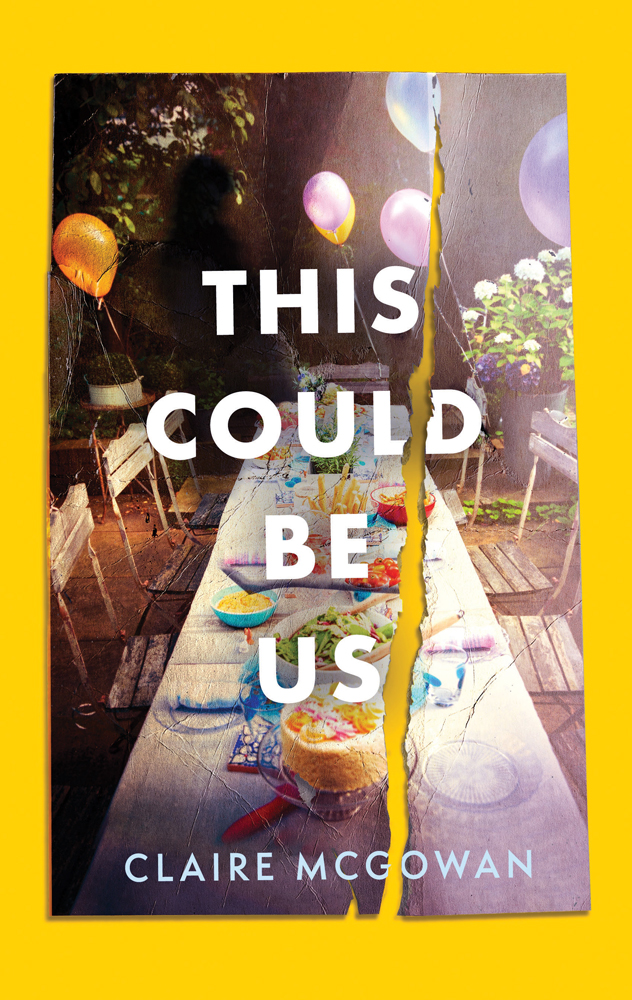
A mother who abandons her children, one severely disabled, must be a monster, right? Claire McGowan’s THIS COULD BE US (Corsair, €15.99) sets her central character Kate up for failure, giving her beauty, a budding career in television and a perfect home. But Kate is edgy and resentful at having to do it all, while husband Andrew is miserable in his job. When their second baby Kirsty is born profoundly disabled, life comes to a screeching halt. When a stranger offers her an out, Kate bolts, leaving her family in the capable hands of her friend Olivia. Years pass, and new Kate is rich and successful, married to Conor, who’s in the movie business. His next project? The story of an Englishman who has discovered how to communicate with his disabled daughter Kirsty. Horrified and terrified, Kate must finally confront her family and make amends. McGowen, an acclaimed writer of crime fiction and originally from Co Down, drew on her own family experience of caring for a disabled sibling to create a complex and ultimately forgiving story.

It’s been a long wait for a new Lorrie Moore novel – her last was the 2009 bestseller A Gate At The Stairs – but it’s coming at the end of June. I AM HOMELESS IF THIS IS NOT MY HOME (Faber & Faber, €15.95), is described as a ghost story set in the 19th and 21st centuries, and dwells variously on the living, the barely alive and the very much dead. From an ancient boarding house, wryly observant Elizabeth writes to her sister about the lodger who wishes to relieve her of her spinsterhood, while 21st-century Finn talks to his dying brother about his hopeless love for suicidal Lily. And even if it’s sometimes hard to distinguish who is actually alive in this dreamlike narrative, Moore’s superb writing and perfect dialogue, whatever the century, kept this reader glued to the page.
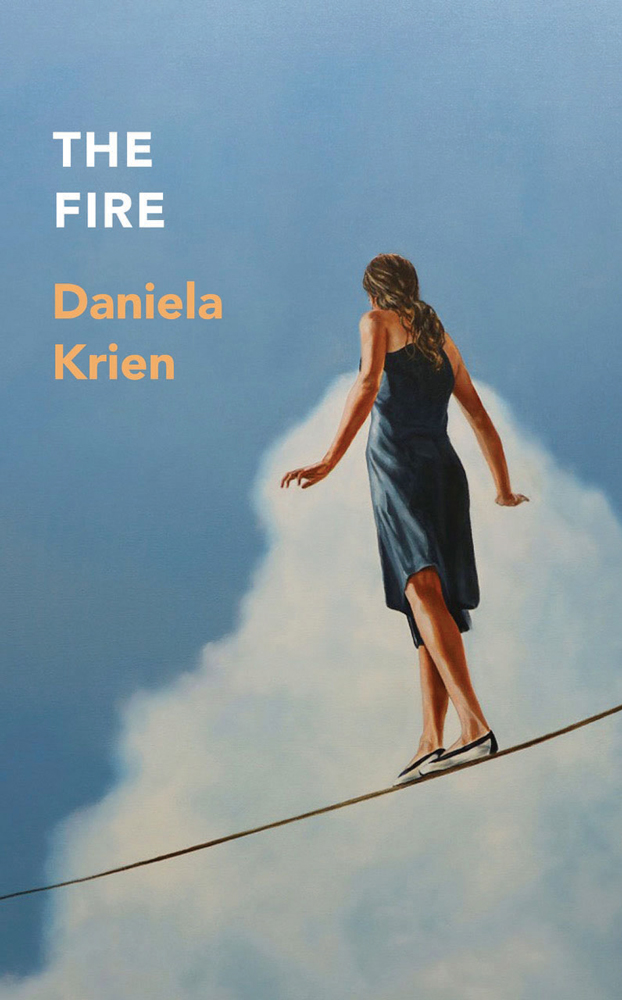
Daniela Krien’s THE FIRE (MacLehose Press, €19.50), translated by Jamie Bulloch, is a short, impactful novel focused on a tired marriage ready to implode from the disappointment of a cancelled holiday. Psychoanalyst Rahul and her academic husband Peter had booked an idyllic mountain cabin for the summer but just days from departure the owner calls to say it has burned down. Then comes a sudden request: Ruth, an elderly friend, needs them to look after her country house by a lake, while she takes her husband Victor to hospital after a stroke. At first resentful, Peter quickly adapts to the farmhouse chores, feeding a menagerie that includes an elderly horse and a stork. Rahul meanwhile finds refuge in Victor’s studio where she discovers drawings of herself as a child. Could Victor in fact be her father? There’s much to worry her as the summer days slip by – Peter’s growing distance since an unpleasant episode with a student, her longing for sex, and the fractious relationship she has with their daughter who descends with children and personal problems in tow. As the summer days glide by, it seems everyone is swimming in a different direction.

MY FRIEND ANNE FRANK (Rider Books, €28.50) is the heartfelt, crystal-clear memoir of the Holocaust survivor Hannah Pick-Gosler who died in late 2022 at the age of 93. A childhood friend of Frank’s, she and her family ended up in Bergen-Belsen, where she reunited with her friend through a fence in the concentration camp. It’s an extraordinary postscript to the history of Anne Frank whose story has been absorbed by generations. The immense cruelty of the regime is recounted in a spare, devastating style by Pick-Goslar who survived 14 months in the camp, eventually moving to Israel after the war.
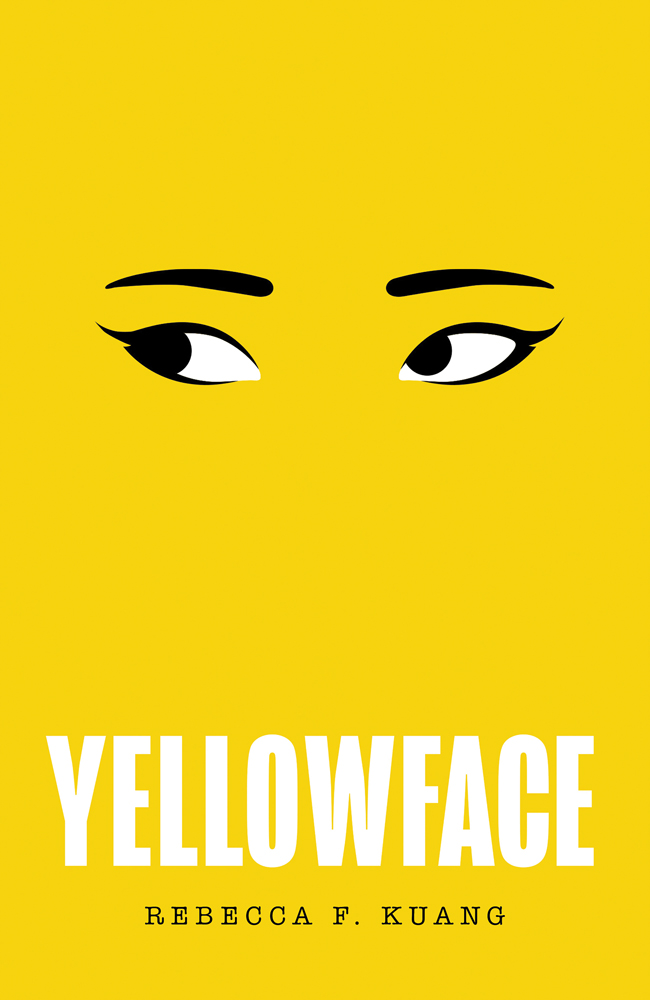
Crackling with frenemy energy, YELLOWFACE by Rebecca F Kuang (Harper Collins, €13.99) pits resentful struggling writer June Hayward against her old college friend, Athena Liu, who is beautiful, talented and showered with book deals and rave reviews. They still hang out together, with June having to endure an evening in Athena’s elegant apartment where she spies a freshly typewritten (no copies!) manuscript, ready to be submitted. When Athena ends up dead that same night, the manuscript is reborn – as June’s own masterpiece. Meanwhile she’s adopted a new Asian-sounding name to resonate with the subject of the book but social media isn’t buying it. With online trolls questioning her authenticity, June knows the only way to fight back is with a new book but she’s fresh out of ideas, until she remembers Athena’s notebooks full of storylines. Sharp writing with dollops of schadenfreude.
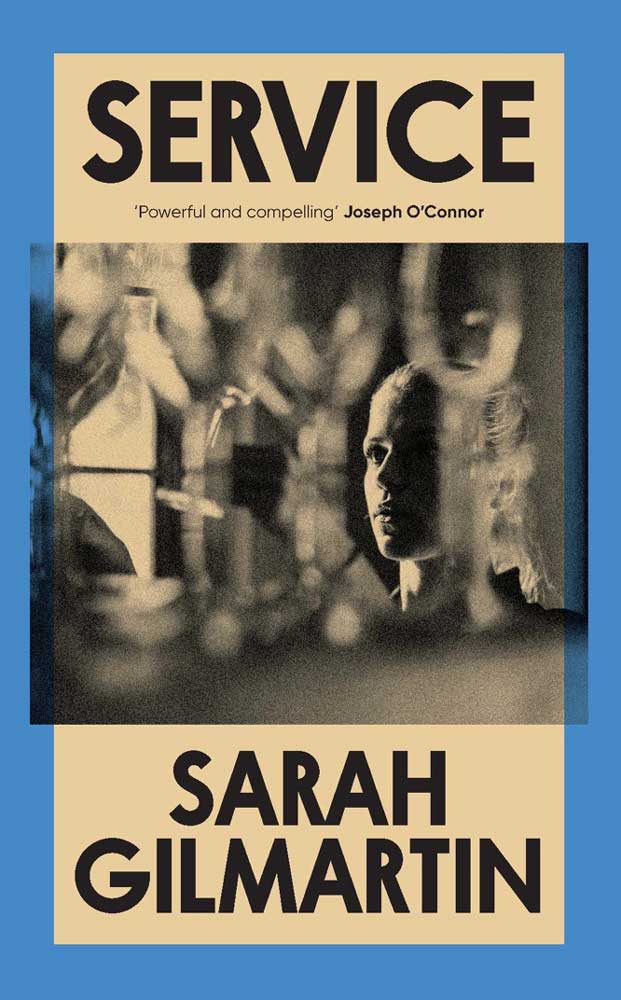
Chef Daniel Oswald Costello, hardscrabble, handsome, holder of two Michelin stars, father of two boys, husband of his childhood sweetheart, rapist? The fiery atmosphere of a restaurant at the top of its game is the setting for Sarah Gilmartin’s latest novel SERVICE (Pushkin ONE, €19.35), which follows her terrific 2021 debut, Dinner Party: A Tragedy. Told from the perspective of Daniel, his wife Julie, and Hannah, who, a decade earlier had waitressed at T, a fabled Celtic Tiger Dublin restaurant, the book opens as a court case looms: a former employee, Tracy, has accused Daniel of rape. When Tracy seeks her support, Hannah is forced to relive her time at T, recalling the hectic kitchen atmosphere, the exquisite food and immaculate table settings, the entitled grabby diners, the tips, the after parties, the shots and cocaine bumps, the dancing, the cold store room. As Daniel senses victory in court, Hannah comes to terms with her damaged self and does what has to be done.
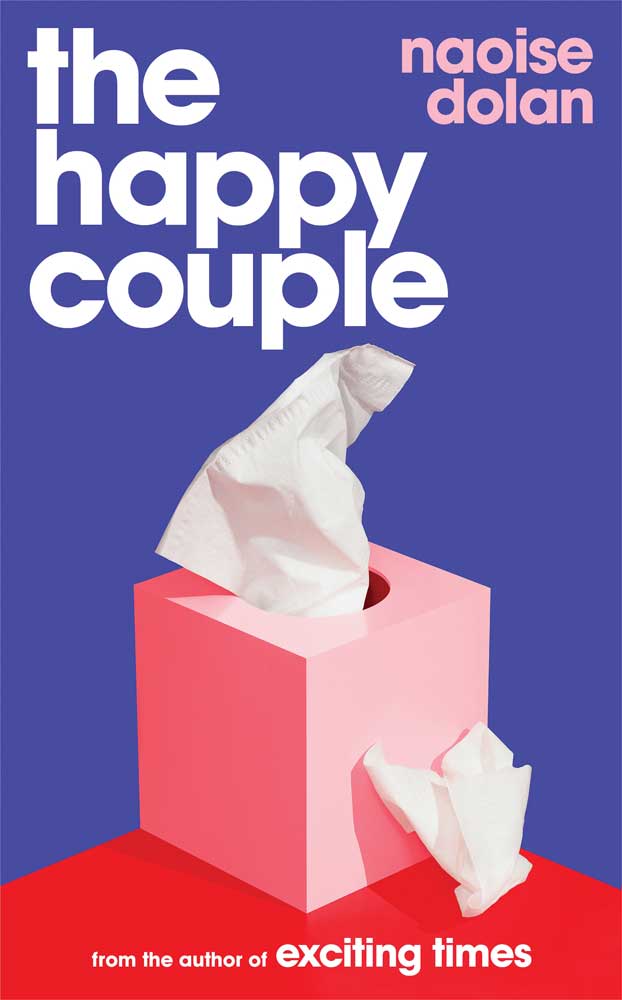
Naoise Dolan’s 2020 novel Exciting Times was one of the hottest debuts of the last decade, and now comes her second novel, THE HAPPY COUPLE (Weidenfeld & Nicholson, €14.99) a thrillingly acerbic take on relationships. Fans will find her acerbic style intact as she introduces Celine and Luke at home in their expensive but crummy Dublin flat. Celine is a pianist who minds her hands. Luke is a communications strategist who says very little. Somehow they have gotten engaged though Celine wonders why she is marrying a man? The reader might wonder too – Luke goes AWOL from their engagement party with Maria, Celine’s stunning ex. Then there’s Archie, Luke’s old university friend and sometimes lover who is determined not to be Best Man. It’s hard to understand Luke’s attraction for almost everyone in the book, except Celine’s sister Phoebe, who considers him devil spawn. When he starts having his own doubts twelve hours out from the wedding, things could turn ugly if it weren’t for Dolan’s diamond-sharp dialogue and marvellous sense of the ridiculous.
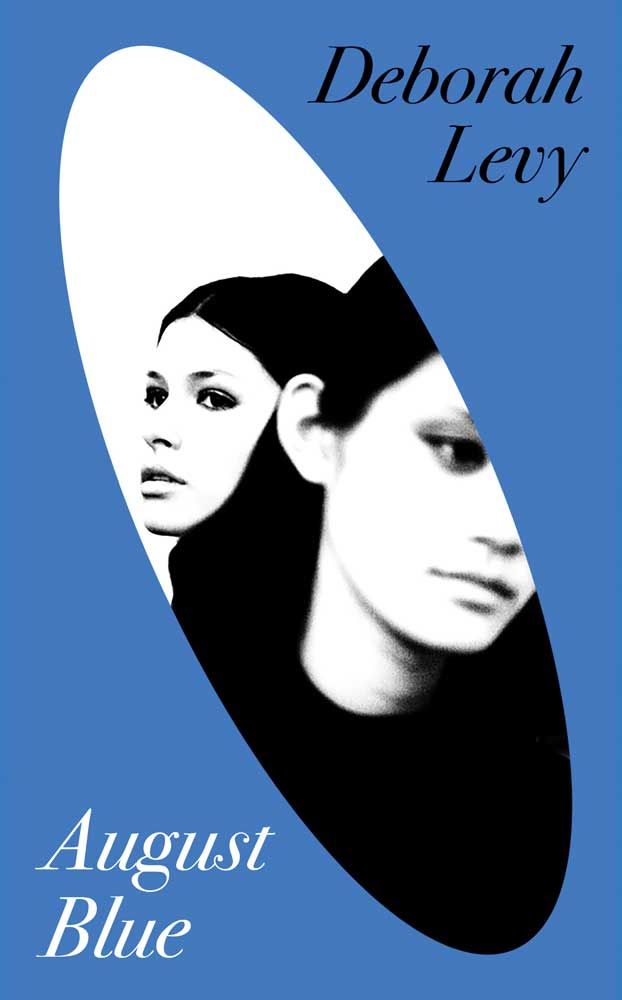
If you love Deborah Levy then you won’t mind where she takes you. AUGUST BLUE (Hamish Hamilton, €19.35), her latest novel, shuttles between Athens, the Greek islands, London, Paris and Sardinia in a dreamlike narrative in which world-famous but blocked pianist Elsa has come to a halt in life. Recognised wherever she goes by her mane of bright blue hair, as the book opens she is in Athens, observing a woman who looks very like her and is in the act of buying a pair of small mechanical horses. Elsa covets the horses and steals the woman’s hat instead. As Elsa fills in the hiatus in her career giving private lessons to rich teenagers, she looks everywhere for the woman, while avoiding what she must confront: the impending death of Arthur, her one-time saviour and piano teacher who needs her, and is the only one who knows her true story.
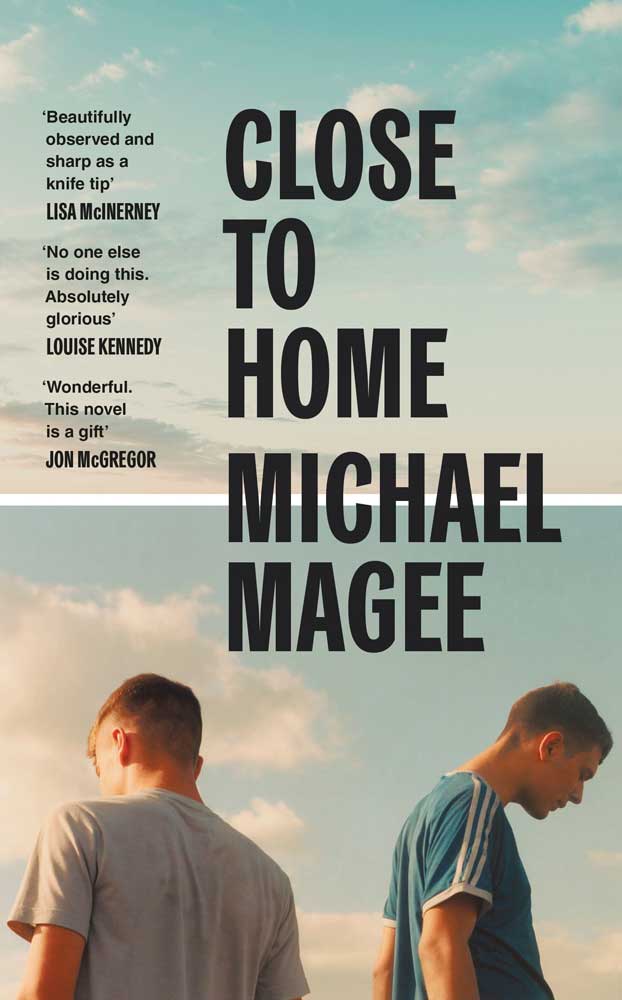
There are so many scenes that would break your heart in Michael Magee’s debut novel CLOSE TO HOME (Hamish Hamilton, £13.99) but still it’s one of the most uplifting books I’ve read this year. Set over a decade ago in recession-ridden Belfast, it’s the story of Sean, recently returned from Liverpool where he studied English and hoped to become a writer. Drawn back into the messy lives of his old friends, he scrapes by on a part-time pub job that earns him enough to go on massive benders. There’s mayhem ahead as Sean confronts his fractured family and their violent secrets, but it’s Magee’s superb rendering of characters, his tender, funny and fearful descriptions of friendships that make this book a winner.
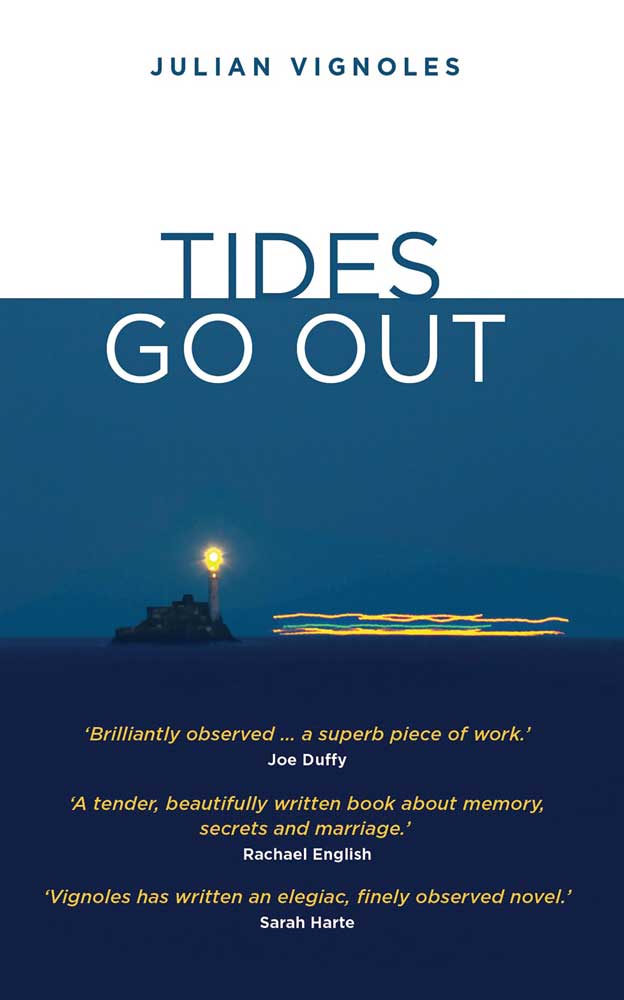
TIDES GO OUT (Orpen Press, €12.99), a first novel from former RTÉ broadcaster Julian Vignoles, explores the territory of a long, even-keel marriage that’s about to come unstuck. Con finds himself wandering the streets of Cork, camcorder in hand, for a film he may never get to see. With Alzheimer’s advancing, he is struggling to recall faces, conversations, his career. His wife Fiona is trying to stay positive but she needs to tell him about an episode in her own past that is threatening to erupt. When Con disappears she discovers that he, too has a secret – in the form of a Danish mistress. Vignoles writes sensitively and really beautifully about the mundanities and acceptances of family life and provides a final frisson when the cruelty of the disease is brought to a devastating conclusion.
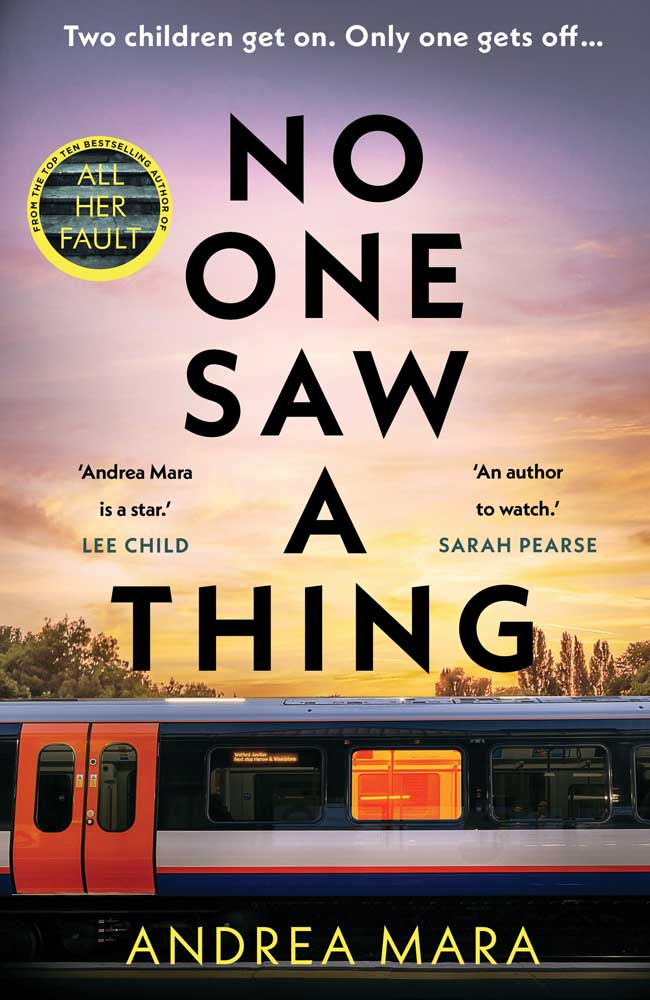
Strap yourself in for Andrea Mara’s NO ONE SAW A THING (Bantam, €13.99) a mile-a-minute thriller about a friends’ reunion that implodes when one of their children disappears on a crowded Tube. Sive is rushing to catch the Tube in rush hour when the unthinkable happens – her six- and two-year-old daughters push their way into the train just as the doors are closing, leaving Sive on the platform with her baby. At the next stop one child gets off, but where is her sister? Rushing between Tube stations, Sive and her barrister husband Aaron call on their London friends to help in the search for six-year-old Faye but real friendship comes from an unlikely source – tough journalist Jude who’s determined to get the the scoop of her career. The twists keep coming as the action rockets back and forth in time exposing the terrible truth that binds the friends together and eventually wrenches them apart.
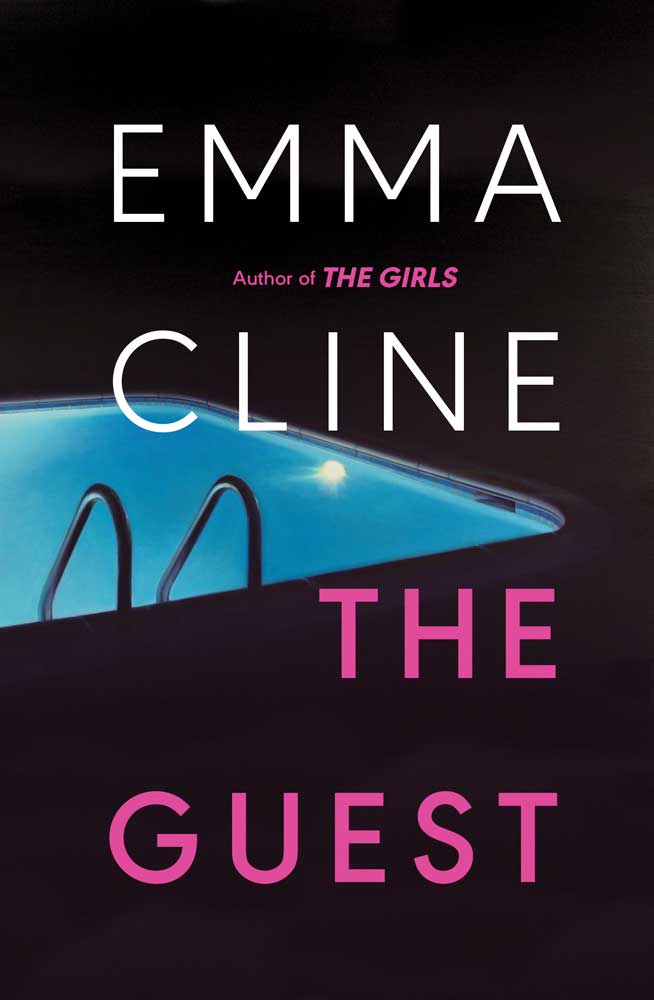
Emma Cline’s THE GUEST, (Chatto & Windus, €19.99) is a Hamptons summer story with an edge. Alex’s wealthy older boyfriend provides a haven from her sketchy New York existence but summer is coming to a close and he is getting tired of her ways. When she misbehaves once too often in front of his friends, he sends her packing, but Alex has a very good reason not to go back to New York and quickly insinuates herself into other people’s lives, living by her wits and her designer clothes. Like a modern-day Lily Bart, Alex looks the part and plays the part, but she’s not prepared to live by the rules and ultimately pays the price.

Beautiful women often end up dating average men but does it ever happen the other way around? Are you kidding? Sally Milz, an Emmy-winning script writer on a late-night TV show, whose average colleague Danny has just got engaged to a movie star, knows it will never happen to her. Though there’s a guy she calls for sex, her schedule doesn’t allow for anything serious, what with the all-night writing sessions and glitzy after-show parties. Curtis Sittenfeld’s ROMANTIC COMEDY (Doubleday, €19.20) introduces Sally at the height of her comedy powers, and the go-to person when guest-host Noah Brewster, a scarily handsome pop idol, needs to sharpen his shtick. There’s instant chemistry but, wait, doesn’t he only ever date models? Sally gives him the brush-off just as Covid descends. When Noah reaches out from California, their email conversations turn serious and Sally sets out across America to see if Noah is really as good as he reads.

Is a wife and mother allowed an inner life? And if she chooses to keep her inner thoughts secret, is that a sin? From the minute Valeria Cossati buys a notebook and starts to write in it, she is terrified her family will find it. The notebook becomes “a blood sucker”, drawing out her doubts and longings. FORBIDDEN NOTEBOOK, a long-dormant novel by mid 20th-century Italian-Cuban writer Alba De Cespedes (Pushkin Press, €19.20) is worth your attention. Valeria feels increasingly trapped in the small house she shares with bank clerk husband Michele, and their two children, Riccardo and Mirella. At first, she fills her notebook with observations on family life, mainly her anger at Mirella for seeing a married man and the struggle to make ends meet on their meagre salaries. Soon, she takes refuge in writing and a private world blossoms in which she becomes close to Guido, her sophisticated boss. As Mirella’s relationship deepens, Riccardo falls for a penniless girl and Michele petitions a glamorous, man-eating friend Clara to sell a script he’s written, the task of holding it all together falls to Valeria. De Cespedes’s own life reads like a novel: granddaughter of the first president of Cuba, she was raised in Rome, married at 15 and began her writing career after her divorce at 20, eventually becoming one of Italy’s most successful novelists.

Anne Griffin’s third novel THE ISLAND OF LONGING (Sceptre, €16.90) presents that most awful scenario – a missing child. Saoirse disappeared without trace eight years ago and her parents, Rosie and Hugh, are falling apart from the loss. Hugh needs some space and so Rosie returns to West Cork to help her father skipper his ferry for a season. Each chapter is prefaced with a line or two that emerge as Saoirse’s story – mundane at first but increasingly terrifying. As Rosie fights to save her father’s business, she draws hope from a clairvoyant friend that Saoirse is still out there somewhere.

There’s trouble down on the farm in Michelle McDonagh’s dark debut THERE’S SOMETHING I HAVE TO TELL YOU (Hachette, €15.80), when the wealthy owners of an agri-tourism business turn up dead at the bottom of the slurry tank. Matriarch Ursula was a well-coiffed pillar of the community, her devoted husband Jimmy only mildly suffering from dementia. Soon the police are hounding Rob and Kate, the son and daughter-in-law who run the farm and stand to inherit everything. But as family secrets bubble unpleasantly to the surface, it seems that there were plenty of people who wanted Ursula dead.

Colorado writer Shelley Read’s GO AS A RIVER (Doubleday, €19.20) follows the meandering course of the Gunnison River through the Elk Mountains, to tell the story of peach farmer’s daughter Victoria Nash. Raised to keep house for her father, brother and mean, wheelchair-bound Uncle Og, at 17 she meets and falls in love with Wilson Moon, a native Indian passing through town. When Wilson disappears, Victoria takes herself away to a remote cabin to give birth to their child but the harsh environment makes a life together impossible and she is forced to make a hard choice. Years later Victoria must fight to preserve her family’s prize peach trees and the kernel of hope that she will one day see her son again. Aimed at Crawdad fans, it’s a pleasure to read.

Debut writer Charleen Hurtubise’s THE POLITE ACT OF DROWNING (Erui, €16.90) will instantly transport you to summer. Set in a lakeside community in Michigan in the 1980s, the story centres on the Kennedy family who have deep roots in the marshy lands around Kettle Lake. Aunt Rita rules the roost with her successful fish tackle business while blow-in Rosemary, married to Danny, is a distracted presence, always drifting away towards a visiting professor who occupies a cabin in the woods. A Memorial Day drowning casts a pall over the holidays, but 16-year-old Joanne Kennedy finds solace in her new friendship with Lucinda, a flighty foster child staying with neighbours, who’s determined to shake up the summer at Kettle Lake.

Prepare to be creeped out by DEATH OF A BOOKSELLER by Alice Slater (Hodder & Stoughton, €16.90) published at the end of April. Is that a snail peeking out at the bottom of the first page? Slowly it emerges, pushing across the opening of each chapter as the story goes deeper and darker. Roach and Laura both work in a bookshop but there the similarity ends. Laura, a poet in her spare time, cleanses and moisturises her pretty face and wears a cute beret. Roach slinks and skulks, can’t abide “normies” and lives for true crime podcasts. When Laura doesn’t respond to her clumsy attempts at friendship, Roach is determined to be part of her life, whether Laura wants it or not. Dark and unsettling, with references to more serial killers than you every knew existed.
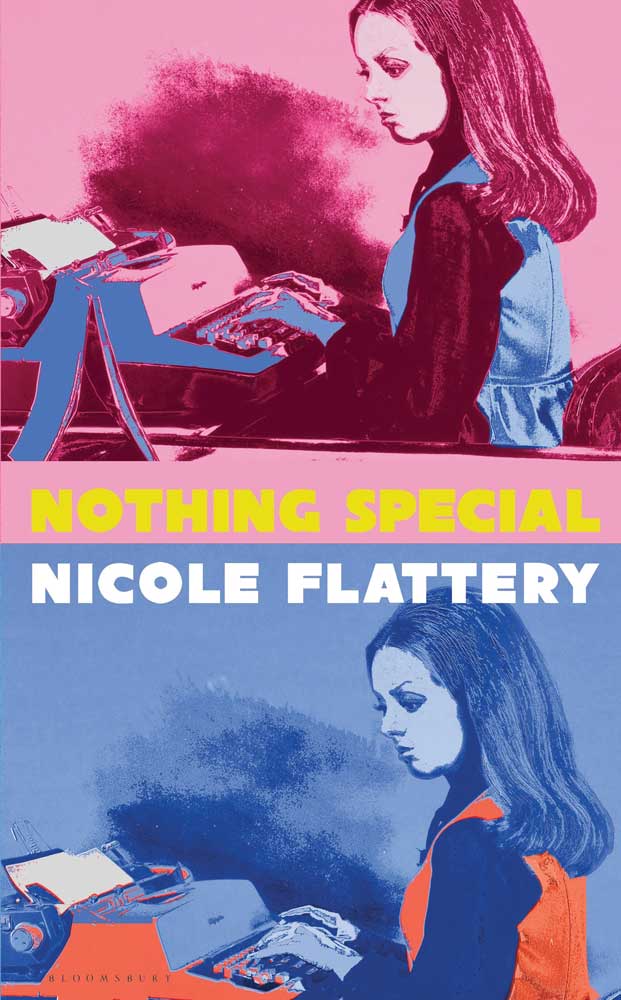
Seventeen-year-old Mae is leading a spectacular double life in Nicole Flattery’s debut novel NOTHING SPECIAL (Bloomsbury, €16.99). Changing out of her school uniform on the subway, she sashays her way to her job as a typist in a strange tin foil-clad studio where wannabe stars and strung-out friends orbit an artist with bad skin and a whispery voice. Inspired by Warhol’s Factory in the mid- 1960s, where two high school girls did in fact work transcribing tapes for what would become Warhol’s novel a, A Novel, Flattery vividly recreates the hectic glamour of the studio where everyone wanted to be famous. Watchful, provocative Mae goes all in, following the entourage to parties, staying nights in the studio, desperate to get away from her mother, a hard-boiled diner waitress, constantly unfaithful to her kindly boyfriend Mikey. But when Mae’s new best friend and fellow typist Shelley disappoints by being just as desperate as everyone else at The Factory, Mae forces herself to move on. Decades later, as her mother is dying, she looks back at her younger self with a cool compassion.
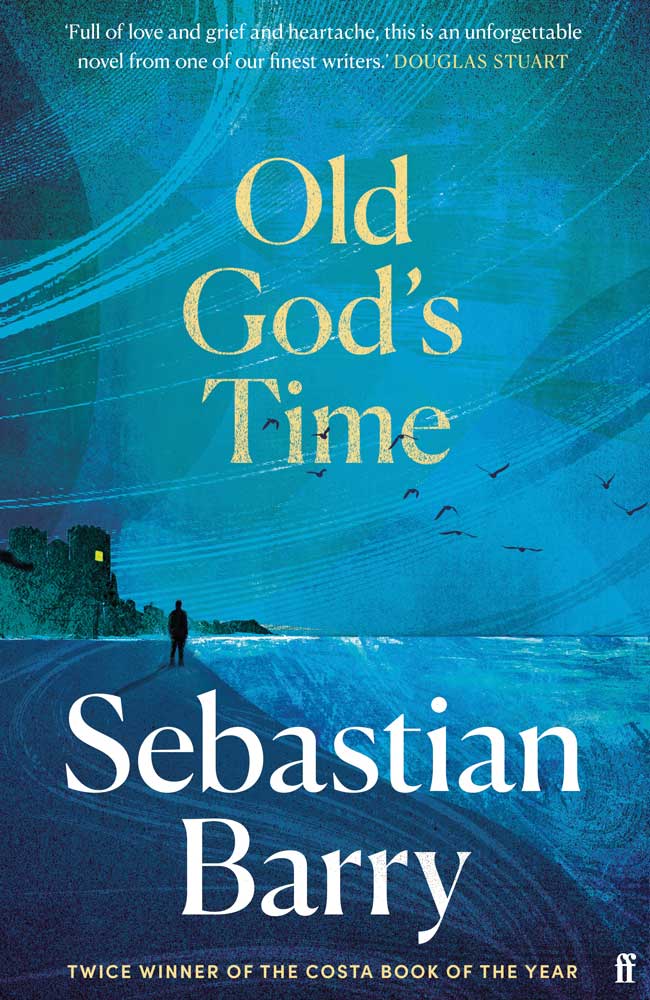
Gruesome episodes of clerical abuse are at the heart of Sebastian Barry’s latest novel OLD GOD’S TIME (Faber & Faber, €13.99). Deliberately vague on dates and times – the action takes place sometimes in the 1960s, sometimes in the 1970s and sometimes in the 1990s, the reader must grasp the sharp edge of a terrible tale through beautifully spun scenes that make this a little masterpiece. Tom Kettle is a retired policeman living in an annexe to a seaside house in Dalkey, occupied by the occasional ghost. He’s not had time to settle in properly, his books still in boxes, when two young guards come calling, asking for help with a cold case. You want this to follow a well-worn storyline, with the old cop solving the case for them, but could Tom in fact be a suspect? The victim, Father Thaddy, was brutally knifed and thrown into a ravine. Tom, in his wicker chair, looking out to sea, smoking his Hamlets, dreams of his wife June, their children Winnie and Joe, and of his own orphanage past. All the love and laughter they shared was no match for the demon that came “roaring up the years, severing something, like a madman taking a scissors to the Bayeux tapestry”. Barry expertly layers the horrors with seams of golden memories and serves up a graceful ending. Definitely worth your time.
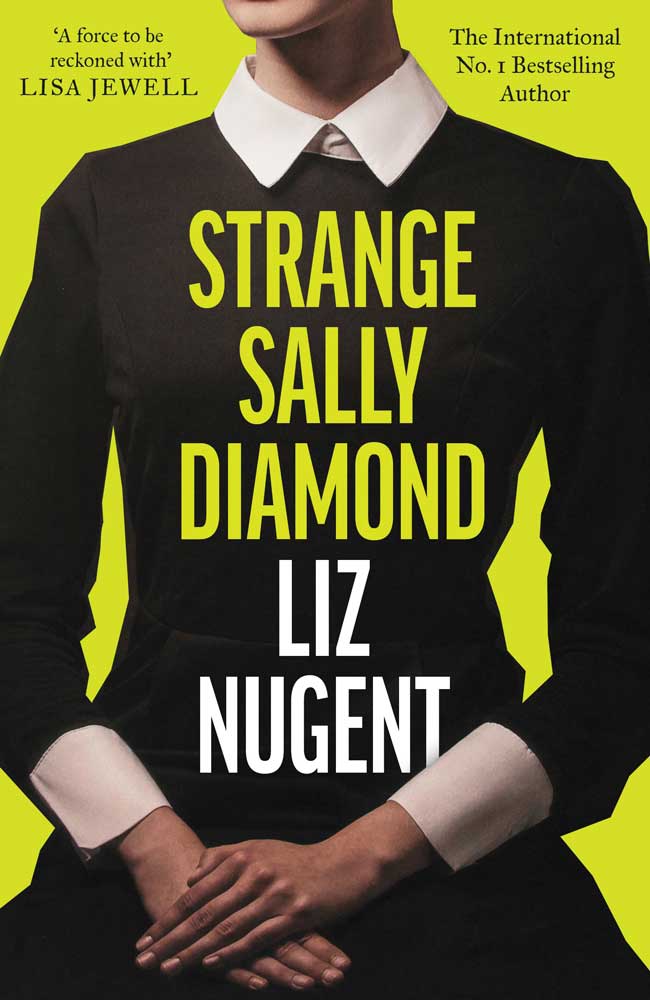
STRANGE SALLY DIAMOND (Sandycove, €15.90) is the strangest and darkest story yet from Liz Nugent, who has the great skill of revealing atrocious details in calm matter-of-fact prose. In a brilliant opening chapter, Sally disposes of her father’s body in an unconventional fashion but nothing is as it seems in this book of shocking revelations. In fact Sally is the adopted child of a notorious paedophile father who kept her mother shackled to a radiator, and that was just for starters. Sally survives and now finds herself on the way to being an independent woman with a new home and an inheritance in the bank. She’s embarked on therapy, is making friends and it could be that life will turn out ok, until a mysterious package with a teddy bear arrives in the post from New Zealand. Sally’s real father escaped too, found himself another captive and carried, on, to the distress of a son the world knows little about but who might have inherited more than his father’s building skills. As Sally’s family reveal themselves, her equilibrium is shattered and the well of anger she has tried to control comes rushing to the surface.

A new short story collection from Margaret Atwood OLD BABES IN THE WOOD (Chatto & Windus, €22.80) offers a brilliant pick and mix of characters and situations. The backbone of the book is a series of stories following the marriage between Tig and Nell – their homes, their family, their ageing parts and Tig’s eventual departure. Interspersed are tales of magical cats, the life of the soul, university politics and a lively imagined interview with George Orwell. Atwood brilliantly captures, too, the snarky friendships between women perfectly comfortable with advancing age and not above telling outright lies to each other to raise a reaction.

A decade on from Booker prize-winning saga The Luminaries, writer Eleanor Catton is back with BIRNAM WOOD (Granta Books, €22.80), a frightening tale for our times. Mira Bunting runs a collective that hijacks disused plots to grow vegetables and fruit to live on and sell. It’s a small scale operation, but the book opens as Mira travels south, having read of a landslide that has left a large farm isolated. It’s perfect for guerrilla gardening on a grand scale that will highlight the work of the collective and the waste of good land. But Mira is not the only one with designs on the farm. When American surveillance billionaire Robert Lemoine shows up, having agreed to buy the land for an end-of-world bunker, he allows Mira and her collective to farm part of the land and even offers to fund them. It’s up to Tony, a disaffected member of the group, to dig into Lemoine’s real plans for the land; it becomes horrifically clear that his intentions are anything but benign. After a slow, thoughtful start the book speeds up towards an unexpectedly grisly conclusion.
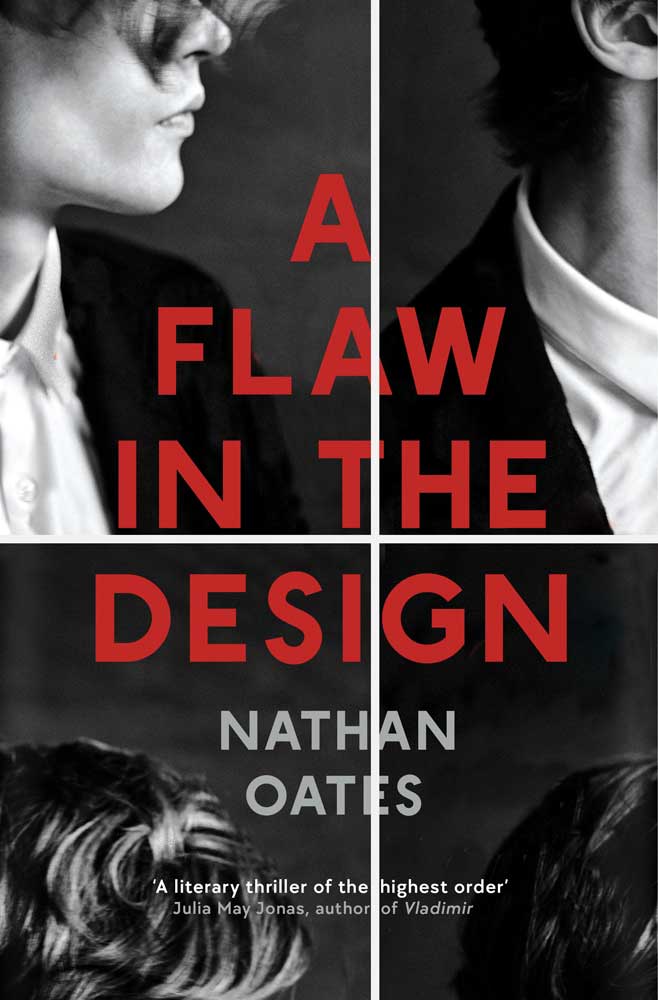
Writing professor turned author Nathan Oates has turned out a humdinger in A FLAW IN THE DESIGN (Serpent’s Tail, €17), a Ripleyesque tale set in New York and mid-winter Vermont. Gil Bennett, a writing professor, and his artist wife Molly have escaped New York for Vermont where they live a contented life with their teenage daughters, but their world is turned upside down when Gil’s only sibling Sharon is killed in a freak accident with her wealthy husband, and they have to take in their orphaned nephew, Matthew, until he comes of age. It’s tricky, since the last time they all met, Matthew had tried to drown his cousin in a swimming pool. When Matthew joins Gil’s writing class, his stories reveal a menace that must be confronted. Gil, boiling with resentment at his nephew’s wealth and arrogance, convinced he murdered his parents, forces a showdown but Matthew is several steps ahead of the game. Or is he? Gil is a great creation, crippled by self-loathing but determined to get to the bottom of his sister’s death. Matthew is a sneery brat who deserves everything that is coming to him.
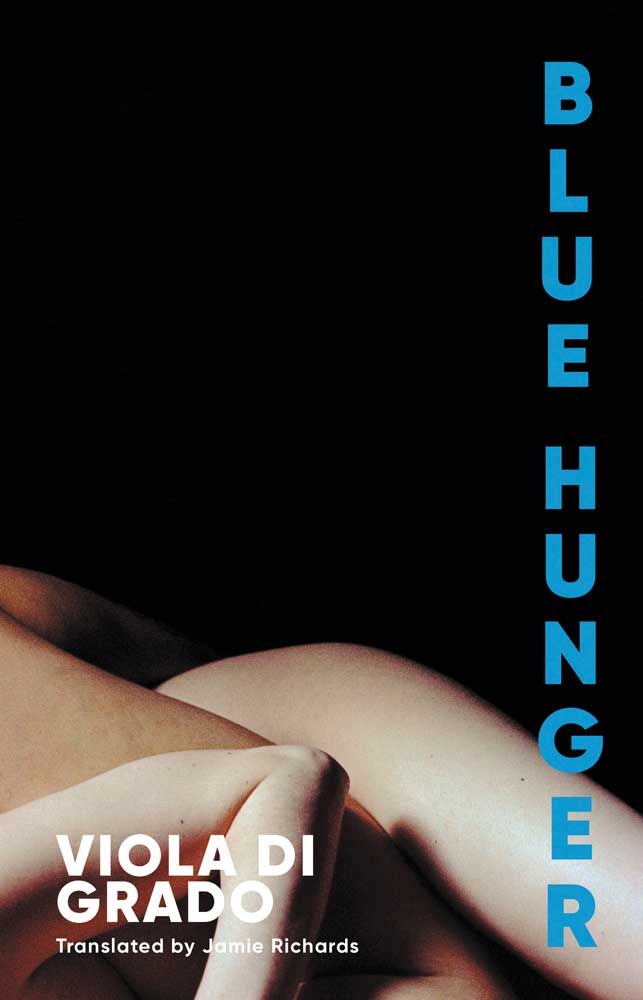
Viola Di Grado’s BLUE HUNGER (Scribe, €14.80) translated by Jamie Richards, plunges the reader into neon-lit Shanghai where a young Italian woman has exiled herself, traumatised by her twin’s untimely death. A chef who had dreamt of moving to China, it falls to Ruben (she has adopted his name) to live a little of that life for him. Instead, she finds herself gobbled up by Xu, a woman with perfect skin and huge appetites. Ruben submits to endless dark, disgusting-sounding dishes, and sex in uncomfortable places, from grimy hotels to disused warehouses and a vast former abattoir. When Ruben tries to break away, Xu’s real nature emerges.
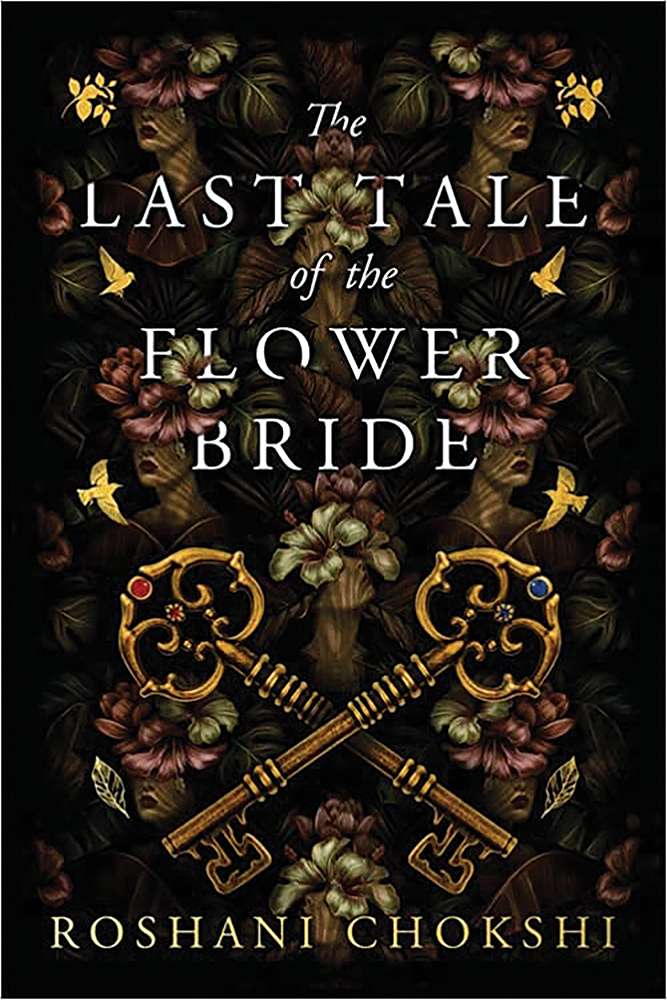
THE LAST TALE OF THE FLOWER BRIDE (Hodder & Stoughton, €19) is the first adult novel from best-selling American YA author Roshani Chokshi and it’s very good. A dark love story with a Gothic feel, it recalls the best, most luscious and frightening fairy tales where dogs had eyes big as saucers and princesses combed precious jewels from their hair. Narrated by two characters, The Bridegroom and Azure, each recounts their enslavement to Indigo Maxwell-Castenada, a billionaire orphan who grew up in the House of Dreams. It’s home to Aunt Tati who raised Indigo as a daughter and welcomes Azure as a second child, witnessing the girls grow so alike that she could tell them apart only by the temperature of their silky black hair. Azure’s hair was colder. But all of this is in the past, and, as part of his wedding vows to Indigo, The Bridegroom has promised not to pry. When they are summoned to Aunt Tati’s deathbed, the house begins to reveal itself, and the nature of Indigo and Azure’s deadly friendship.
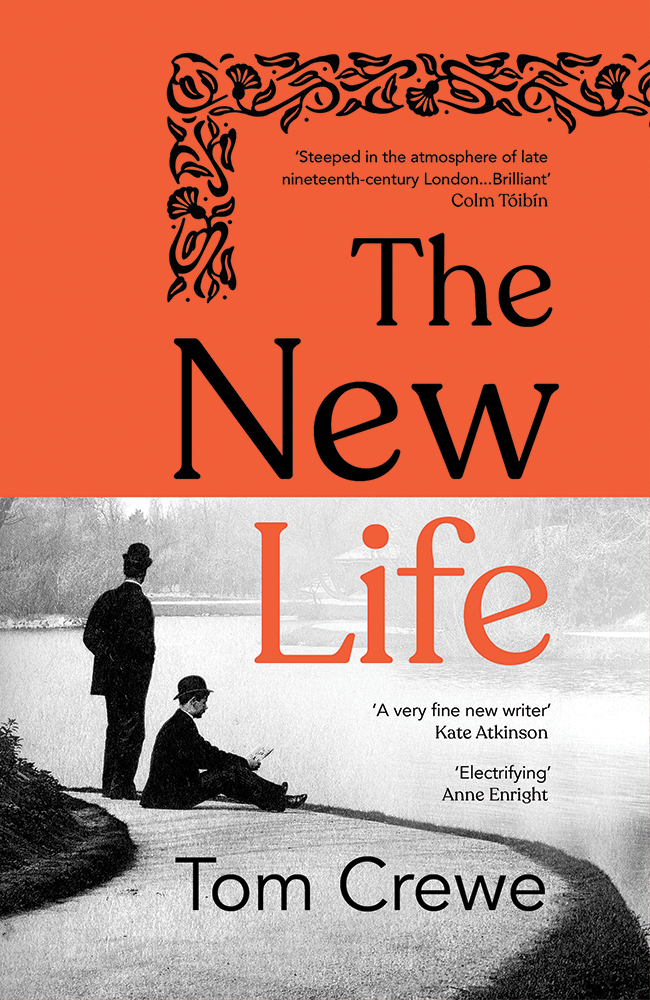
Dense London fog regularly envelops the characters in Tom Crewe’s brilliant first novel THE NEW LIFE, (Chatto & Windus, €19), a Victorian-era story set against the backdrop of Oscar Wilde’s 1895 trial for gross indecency. The fog allows, for one blissful moment, a kiss between the esteemed writer John Addington and his young working-class lover Frank, but Addington’s wife Catherine takes a dim view when he installs Frank as his live-in secretary, and agrees to co-write a book arguing against the criminalisation of male homosexuality. His co-author Henry Ellis, is a medic and writer who, through membership of The Society of New Life, is striving for a more just society through education, improved public health and equality of the sexes. His own marriage to Edith is a chaste arrangement in which they live apart, with Edith taking a lover, Angelica. While Henry broods on his unconsummated marriage and his own secret inclinations, Addington yearns to be free and is prepared to expose the lie of his own marriage. Crewe has written an intensely human, sympathetic story. Highly sexual scenes are cut with the everyday – dressing and undressing, frugal meals, cups of tea, the lighting of gas lamps and the stroking of dense Victorian beards. It’s simply one of the best books you will read this year.

Kathleen McMahon explores the damage a damaged parent can do in her much-anticipated fourth novel, THE HOME SCAR, (Sandycove, €15.70). Half-siblings Christo and Cassie, who live on different continents, are drawn back to the west of Ireland after a violent storm reveals an army of drowned trees from prehistoric times. It’s the very forest their mother had obsessed about years before and so it seems right to meet again in Galway where they spent a summer before their mother’s early death. Each has found some happiness – Christo in a cloistered English college, Cassie as an artist in Mexico, but the burden of their mother’s ruined life hangs heavy and immutable as the hardened stumps of the ancient trees they finally discover for themselves.

IN ORDINARY TIME, FRAGMENTS OF A FAMILY HISTORY (Duckworth, €19), Carmel McMahon tells her emigration story, stitching in threads of Irish women’s history and the tragic lives of two of her brothers. McMahon landed in New York in 1993 with $500 and a modelling contract but soon took the familiar route of bar-tending jobs and cramped flatshares. Calls home were frequent – her mother always curious to know what New Yorkers were doing and wearing. Fur coats with sneakers? No! A job in the Whitney Museum could have been a dream, but McMahon was drinking heavily at that point and had to give it up. Later she worked as a secretary to a wealthy art collector, befriending the woman’s personal stylist Georgette, a hawk-eyed Frenchwoman who looked incredible for 80. All the while, McMahon is dipping in an out of Irish history, studying Jung, writing and eventually getting sober. The fragments of her New York life seem carefree alongside the shocking events endured by her family in this beautifully crafted memoir which left me wanting more.
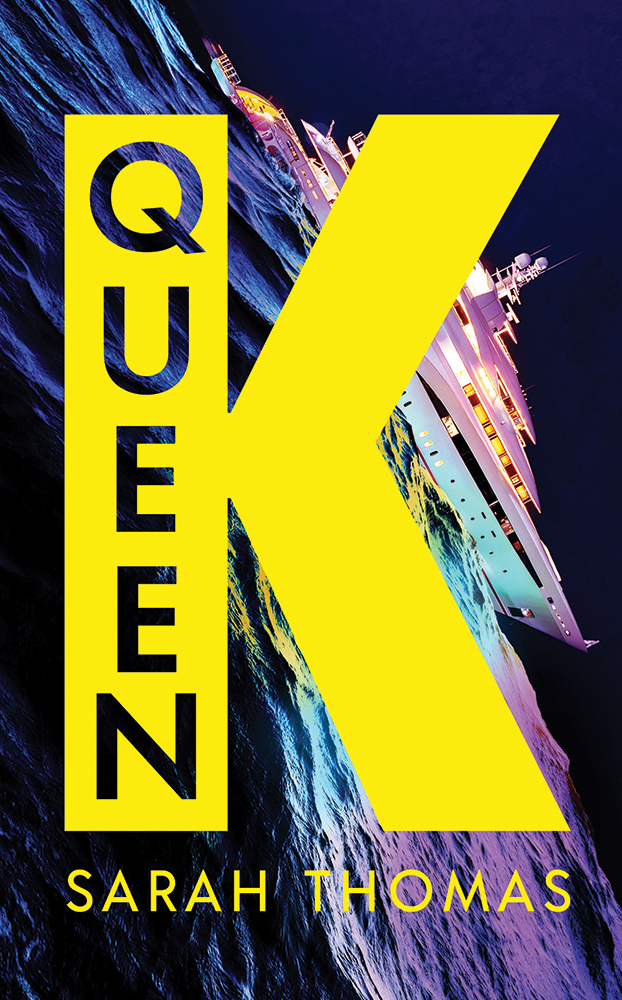
Sarah Thomas has drawn on her own experience as a tutor to the super-wealthy for her debut novel QUEEN K (Serpent’s Tail, €19). Narrator Melanie is employed by Kata and her oligarch husband Ivan to prepare their daughter Alex for a posh English school. Alex is naturally brilliant and has no real need to be tutored but over the years, Melanie becomes a friend and confidante. With her parents too wrapped up in their own affairs – Ivan’s business and politics and Kata’s anxious social climbing – Alex is determined to be noticed. While Melanie longs for the trappings of wealth to obliterate her own sad childhood, Alex plots a terrible revenge aboard her parents’ superyacht.
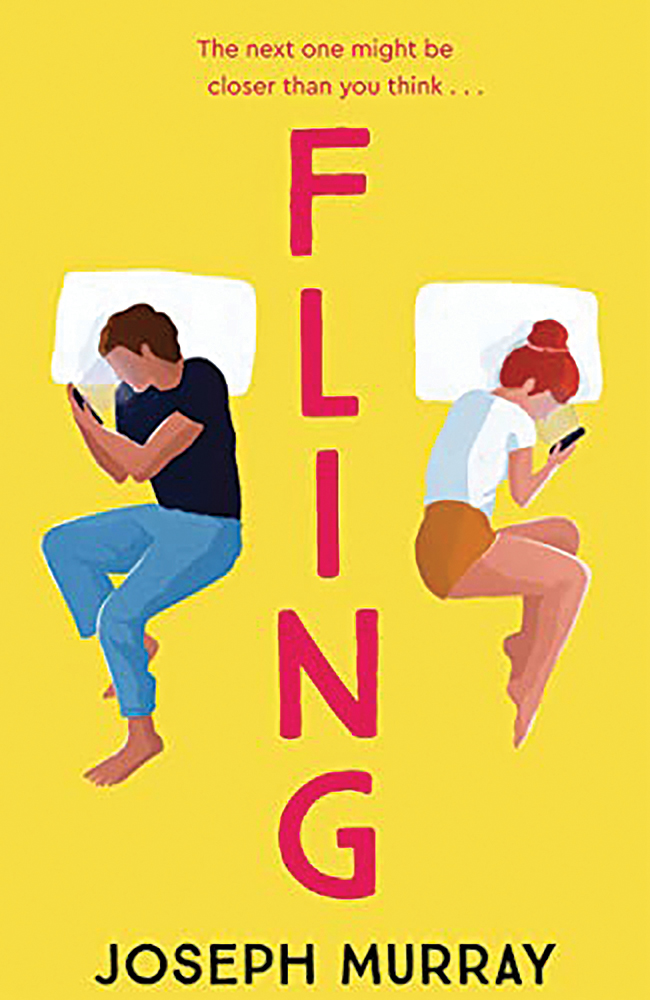
In FLING (Macmillan, €16.90) Dublin couple Tara and Colin can just about remember a time when they were madly in love, but six years of marriage and three failed rounds of IVF treatment has snuffed out the spark. Which makes them perfect candidates for Fling, a dating app aimed at the unhappily married. When each hits a perfect match, you might guess what happens next but snappy dialogue carries the story along to a satisfying conclusion in this entertaining debut from Meath writer Joseph Murray.

Every generation needs its Becky Sharp, the brazen character crafted by William Makepeace Thackeray in his 1848 novel Vanity Fair and much copied since. Here she is again in BECKY (Picador, €16.90) Sarah May’s Succession-style saga in which orphan Becky wriggles into the newspaper-owning Crawley family and doesn’t stop until she reaches the boardroom. Becky is also inspired by Rebekah Brooks, Rupert Murdoch’s protégée who was the first female editor of The Sun. Set in the 1980s and 1990s, it rattles along very enjoyably, as talented Becky sucks up to celebrities and royalty then exploits them ruthlessly for her own ends.

If January is about holding back and denying yourself after the excess of Christmas, then I urge you to pre-order Joseph O’Connor’s latest book and count the days until comes out at the end of the month. MY FATHER’S HOUSE (Harvill Secker, €17) is a riveting historical thriller set in Nazi-occupied Rome and largely based on real life characters. Monsignor Hugh O’Flaherty – an Irish priest known as the Scarlet Pimpernel of the Vatican – is on a mission to rescue Allied soldiers and Jewish refugees from the clutches of the Nazis at the height of the Second World War. On his cassock-tails is Gestapo leader Paul Hauptmann, a hideously smooth killer who purrs through Rome in an armour-plated Mercedes. From the safety of the neutral Vatican City, O’Flaherty sets up an Escape Line, helped by an unlikely band of associates – the group masquerading as a choir. The key characters are based on real people: Delia Murphy was a well-known singer and wife of the Irish ambassador to Rome at the time; Major Sam Derry was a POW escapee; Sir D’Arcy Osbourne was British ambassador to the Holy See and colourful John May was his righthand man. The book is told from all their viewpoints along with those of an Italian countess and a Danish woman journalist who writes stories on the hidden treasures of Rome. Meeting in a forgotten Vatican building full of damaged statues, the Choir arranges fundraising and manages a network of safe spaces for escapees, housing many of them in ancient passages beneath the Holy See. Tensions mount as the group plans its most ambitious rescue yet for Christmas Eve 1943. The sheer terror of night is brilliantly encapsulated by O’Connor, who had full access to a trove of documents, letters and journals owned by the O’Flaherty family.

It’s all in the title with REALLY GOOD, ACTUALLY (Fourth Estate Ltd, €17.40), Monica Heisey’s millennial tale of marriage gone wrong. Twenty-nine-year-old Maggie is getting divorced and hating every minute of it. She cries, rants, buys a ton of stuff online and lives on late night burger deliveries. She quickly learns to interrupt people when they talk to her about kintsugi, the Japanese art of fixing cracked porcelain. Jon meanwhile has taken their cat with him and won’t answer her messages but at least she doesn’t sleep with his best friend Calvin when the opportunity arises. Heisey is very funny, as you’d expect from someone whose TV writing credits include Schitt’s Creek. She brilliantly skewers personal growth mantras as Maggie struggles through therapy with the one aim of getting Jon back.

Debut author Fran Littlewood brews a bitter stew of maternal guilt and hormonal mayhem in AMAZING GRACE ADAMS (Michael Joseph, €17.40). Forty-five-year-old Grace, fluent in several languages and a one-time game show host, is in a bit of mess but what kind of mess, you will be wondering, as she abandons her car in a traffic jam and sets out to buy a cake in the midst of a heatwave. Is it because her husband has left her? Or that her daughter is skipping school, or that she can’t control her menopausal fury at things? Cake in hand, she strides through London, hot, blistered and beset by memories that become more painful as Grace finally confronts her little family’s terrible loss. I was wiping away tears by the end of this story, but there is such insight and humour too. Throw in a harried GP, a mother-in-law from hell and the PTA nosey parker of the year, and Grace Adams emerges as something of a hero.
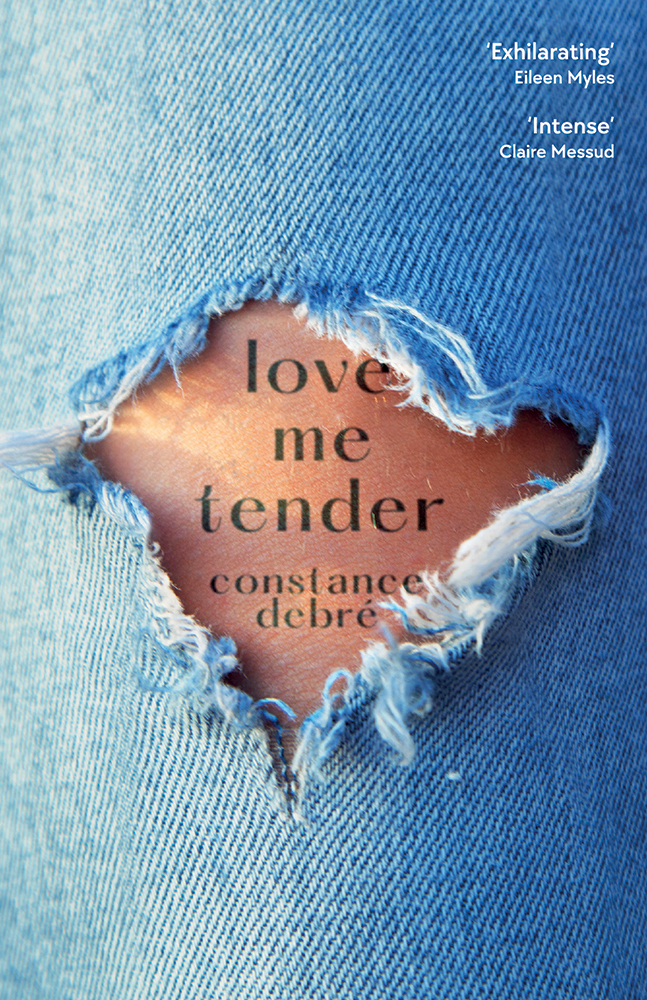
How would it feel to walk away from one’s life – family, job, friends and possessions? Constance Debré has done it in real life and her second memoir, LOVE ME TENDER (Tuskar Rock, €17.40), translated by Holly James, documents how it feels. She leaves her well-off husband, starts to date women, stops working as a lawyer and surrenders her son after years of wrangling through the family courts. Even though she eventually wins visiting rights, her son isn’t sure he wants to be with her. She swims to stay sane, bedhops between women but soon tires of their demands. The book ends with a note of hope but it’s a harsh existence all the same.

Praised by Colm Tóibín and Ann Patchett, GROUNDSKEEPING (Faber, €9.50) is an American campus romance that’s had critics compare debut writer Lee Cole to Sally Rooney. Owen Callahan is an aimless young man who has come home to rural Kentucky to get back on his feet. Living with his grandfather and uncle, both Trump supporters, he hopes to become a writer and, in the interim, works as a tree-cutter in the local university which allows him access to creative writing classes. When he meets Alma, a young poet originally from Bosnia, who’s on a prestigious fellowship, they fall into an uncertain relationship overshadowed by their very different backgrounds.

Aidan Cottrell-Boyce’s THE END OF NIGHTWORK (Granta Books, €15) is a curious, demanding book that lingers in the mind. Narrator Por has a hormonal disorder that keeps him unnaturally young for years, then makes his body leapfrog through decades overnight. He and his wife, a teacher, have a son, Jesse, and lead a seemingly normal life though Pol’s academic career has stalled. However, Pol’s obsessive interest in the writings of 17th-century Puritan prophet Bartholomew Playfere and his exposure, through tutoring a wheelchair-bound teenager, to a radical new movement, puts his family at risk and threatens the return of his terrifying condition.
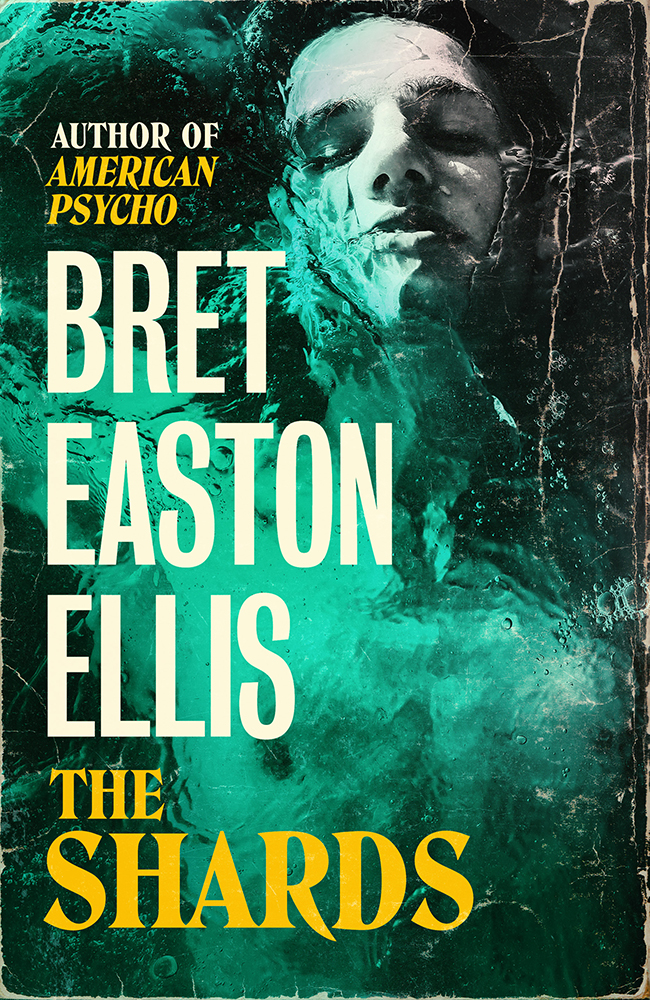
American Psycho author Bret Easton Ellis is about to publish THE SHARDS, his first novel in 13 years (Swift Press, £25). A mash-up of fact and fiction, it’s narrated by Bret, a middle-aged novelist who recalls events at his posh LA school in 1981. A new boy joins the class and is quickly absorbed into Bret’s friend group, but who is he exactly? They can’t work him out, but there are other things to worry about such as the serial killer they call The Trawler who’s on the loose and seemingly heading in their direction.
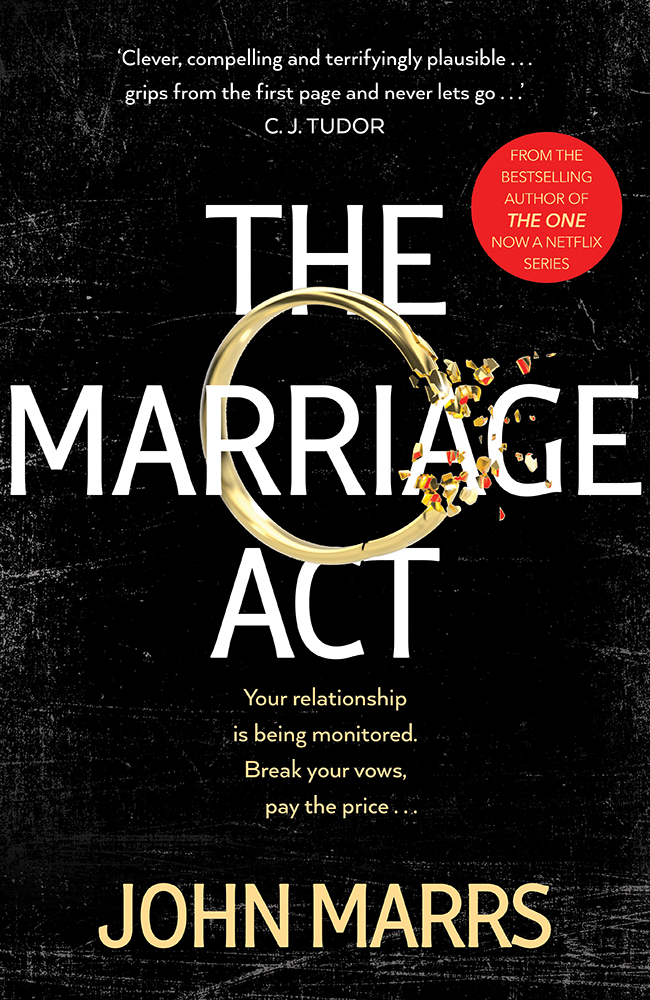
Finally, I’m looking forward to reading THE MARRIAGE ACT by John Marrs (Macmillan, £16.99), a near-future thriller in which a right wing government extends its powers in the home, using AI to monitor relationships and interfere in struggling marriages. It’s set in the same creepy world as The One, his 2016 thriller about a DNA matchmaking service gone wrong that has been made into a Netflix series.
Follow Orna on Twitter @OrnaMulcahy





